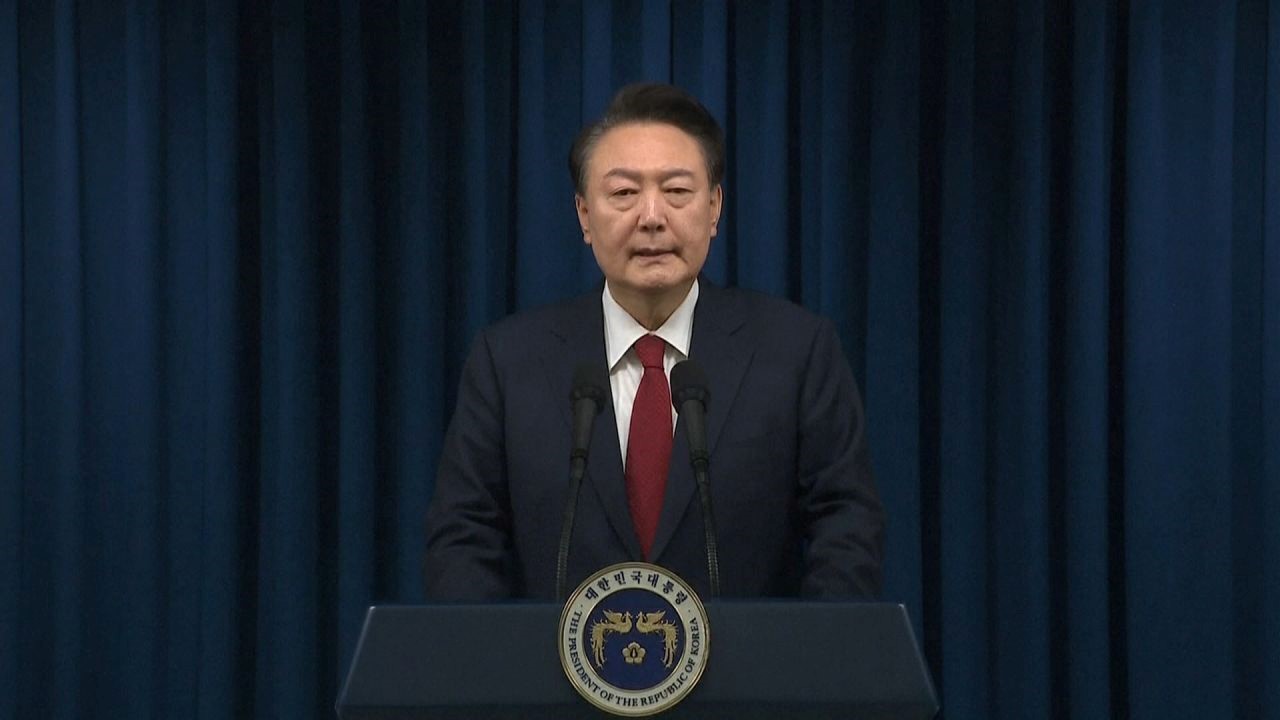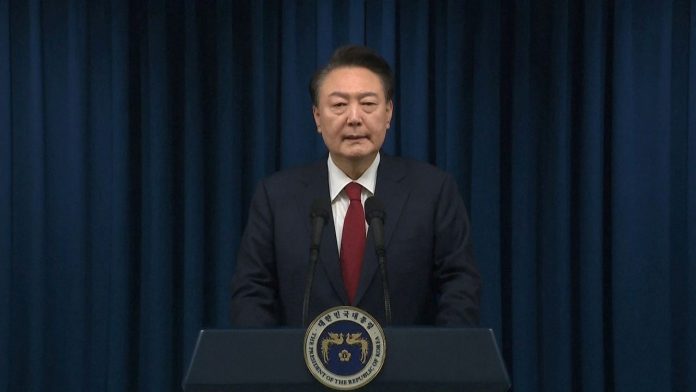
South Korean Court Issues Arrest Warrant For President Yoon Suk Yeol Amid Political Turmoil
A South Korean court approved an arrest warrant for President Yoon Suk Yeol on Tuesday, December 31, amid a deepening political crisis following his controversial decision to declare martial law nearly a month ago. This marks the first time in South Korean history that a sitting president has faced an arrest warrant.
The dramatic development coincides with new revelations about the night Yoon attempted to shut down the parliament. Yoon was stripped of his presidential powers earlier this month after a vote by South Korea’s parliament impeached him, triggered by his refusal to resign following the December 3 martial law decree. Some members of his ruling party turned against him during the impeachment process.
The Seoul Western District Court issued the warrant on charges of abuse of authority and orchestrating a rebellion, according to South Korea’s anti-corruption agency. The warrant follows Yoon’s refusal to comply with three summonses from investigators seeking his cooperation.
Yoon is under investigation for several allegations, including leading an insurrection. On December 30, South Korean law enforcement officials requested the arrest warrant. Yoon’s lawyer, Yoon Kab-keun, criticized the warrant, calling it “illegal and invalid” and claiming that the request process was not transparent.
Typically, an arrest warrant must be executed within seven days, though it can be extended. Earlier, law enforcement officers attempted to raid the presidential office as part of the investigation, but their efforts were blocked by the president’s security team, despite having a search warrant.
The presidential security team has stated that “security measures will be taken in accordance with due process” as the investigation continues.
New details have emerged about the night Yoon declared martial law. Yoon reportedly ordered military troops to South Korea’s parliament to suppress lawmakers who were trying to block the martial law decree. As soldiers attempted to enter the National Assembly, lawmakers built barricades to prevent them from entering.
According to a prosecution summary from the former defense minister’s indictment, Yoon allegedly ordered the military to use firearms to break open the doors if necessary. The president was quoted as saying, “Haven’t you entered yet? What’s taking so long? Break down the doors and drag them out!”
In the early hours of December 4, the National Assembly voted to overturn the decree, with 190 of the 300 members opposing it, after which the military withdrew. However, the prosecution claims that Yoon vowed to declare martial law again if needed.
The former defense minister, Kim Yong-Hyun, who was arrested earlier this month, has been indicted for abuse of power and his involvement in the insurrection. Kim allegedly ordered the military to prioritize arresting key political figures before the martial law was lifted.
Yoon has largely remained out of the public eye in recent weeks as he faces a Constitutional Court trial to determine whether he will be formally removed from office. The trial could take up to six months. The court held its first pretrial hearing on December 27, which Yoon did not attend, though his presence is not mandatory.
The Constitutional Court has pledged to prioritize the case, alongside other impeachment efforts against Yoon’s administration. Currently, the court is short of justices due to vacancies, but acting president Choi Sang-mok announced plans to appoint two new justices immediately and a third when the ruling and opposition parties reach an agreement.
A second pretrial hearing for Yoon is scheduled for Friday. Meanwhile, Yoon has been banned from leaving the country, and several top officials from his government have been arrested and indicted on charges of insurrection.

 Mzansi xxx
Mzansi xxx
